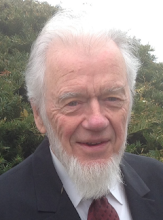Christian
Leopold (C.L.) Neiger, my only great-grandparent not born in the U.S., was born
in Canton Bern, Switzerland, 180 years ago today, on May 30, 1840. Five years
later, and sixteen years before C.L. immigrated to the U.S., the Southern
Baptist Convention was formed in 1845.
 |
| The International Mission Board of the SBC was formed on the same day as the new convention. |
Turmoil
at the Beginning
The
Southern Baptist Convention was formed because of turmoil over slavery. There
were some other issues that also led to the formation of the new convention,
but the slavery issue was unquestionably the most decisive one.
Specifically,
in response to the policy adopted in 1844 that slaveholders would not be
appointed as missionaries, Baptist delegates in the South formed the SBC.
In
May 1845, those delegates met in Augusta, Georgia, to form the new Convention. Beginning
with a
total membership of nearly 352,000 in over 4,100 local Baptist churches, it
was geographically
restricted to states that would eventually become the Confederacy.
Turmoil
through the Years
Most
of the turmoil in the SBC after its founding has been theological. One of the first
such controversies centered around C.H. Toy, professor of Old Testament at The Southern
Baptist Theological Seminary. He was forced to resign in 1879.
Fundamentalists,
such as those led by J. Frank Norris, the fiery pastor of First Baptist Church
of Fort Worth, caused turmoil in the SBC from the 1920s to the early 1950s.
Turmoil
in the SBC again emerged after Ralph Elliott, professor of OT at Midwestern
Baptist Theological Seminary, published The Message of Genesis in 1961.
He was fired the next year.
The
“conservative resurgence” of the SBC (aka the “fundamentalist takeover”) began
in 1979 and following years of turmoil, the convention made a massive move to
the theological—and to the political—right.
And
now this year a new movement has started. It is called the Conservative Baptist Network (CBN), and some are calling it a “second
conservative resurgence.” It remains to be seen how much turmoil CBN will cause
in the coming years.
An
Embarrassed Southern Baptist
Not
long after C.L. Neiger married my great-grandmother Margaret (Abplanalp) in Indiana,
they moved to Worth County in northwest Missouri, the county where I was born
about 70 years later.
C.L.
and Margaret’s daughter Laura married George Seat, my grandfather. George’s
great-grandfather, Littleton Seat, moved from Tennessee to Cooper County, Mo.,
about 1818. He moved to Worth County with his family in 1844—and died there the
next year, the same year that the SBC was founded.
In
the eighteenth century the Seat family lived in Virginia—and they owned slaves.
According to family stories, two of Littleton’s older brothers were killed by a
13-year-old slave boy in 1786.
When
the Seat family moved to near Nashville, Tennessee, about the turn of the
century, they likely took some slaves with them, although the three Seat brothers
who moved to Missouri before 1820 didn’t seem to have slaves—and it is quite
certain that the Seats in Worth County never had any.
Near
the beginning of my book Fed Up with Fundamentalism, I wrote about being
an embarrassed Southern Baptist—and in June 2015 I wrote about being both a proud
and ashamed Southern Baptist—but that was because of what the Southern Baptist
Convention had become, theologically, after 1980.
My
first embarrassment, though, was when I learned why the SBC was formed in the
first place. As a boy, I always identified with the North/Union in thinking
about the Civil War—and I wasn’t prejudiced against African Americans, for I
never saw a Black person in my home county.
The SBC formally
apologized to African Americans in 1995 (at the annual convention marking the
150th anniversary of the SBC’s founding) for the denomination's
pro-slavery past. Some charged that that was too little, too late. But I am on
the side of those who say, Better late than never.
During
all the years I was a Southern Baptist, I disliked the name, which embodies its
racist beginnings—and I have been an advocate of a name change since my student
days at The Southern Baptist Theological Seminary in the 1960s.
After
175 years, surely the time has come for a name change—and after 40 years of turmoil
caused by those on the theological right, surely the time has come for a move
back toward the theological center.





